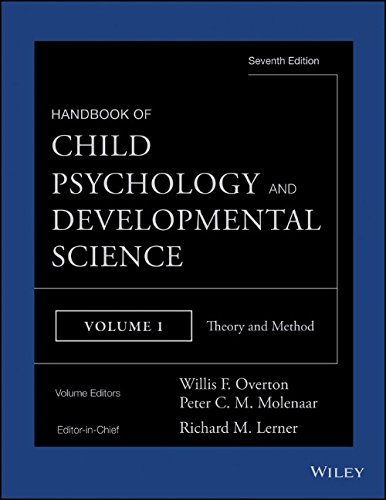

Most ebook files are in PDF format, so you can easily read them using various software such as Foxit Reader or directly on the Google Chrome browser.
Some ebook files are released by publishers in other formats such as .awz, .mobi, .epub, .fb2, etc. You may need to install specific software to read these formats on mobile/PC, such as Calibre.
Please read the tutorial at this link: https://ebookbell.com/faq
We offer FREE conversion to the popular formats you request; however, this may take some time. Therefore, right after payment, please email us, and we will try to provide the service as quickly as possible.
For some exceptional file formats or broken links (if any), please refrain from opening any disputes. Instead, email us first, and we will try to assist within a maximum of 6 hours.
EbookBell Team

0.0
0 reviewsThe Handbook of Child Psychology and Developmental Science, a four-volume reference, is the field-defining work to which all others are compared. First published in 1946, and now in its Seventh Edition, the Handbook has long been considered the definitive guide to the field of developmental science.
Volume 1, Theory and Method, presents a rich mix of classic and contemporary theoretical perspectives, but the dominant views throughout are marked by an emphasis on the dynamic interplay of all facets of the developmental system across the life span, incorporating the range of biological, cognitive, emotional, social, cultural, and ecological levels of analysis. Examples of the theoretical approaches discussed in the volume include those pertinent to human evolution, self regulation, the development of dynamic skills, and positive youth development. The research, methodological, and applied implications of the theoretical models discussed in the volume are presented.
The scholarship within this volume and, as well, across the four volumes of this edition, illustrate that developmental science is in the midst of a very exciting period. There is a paradigm shift that involves increasingly greater understanding of how to describe, explain, and optimize the course of human life for diverse individuals living within diverse contexts. This Handbook is the definitive reference for educators, policy-makers, researchers, students, and practitioners in human development, psychology, sociology, anthropology, and neuroscience.